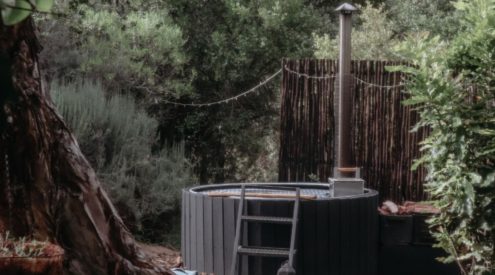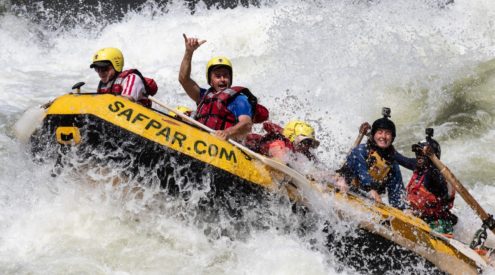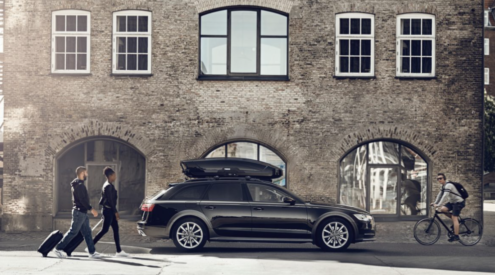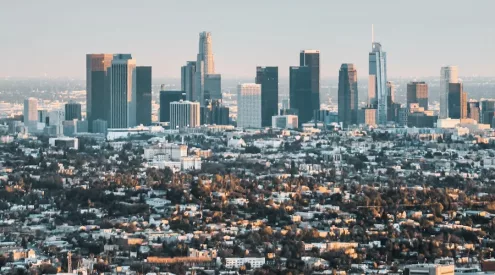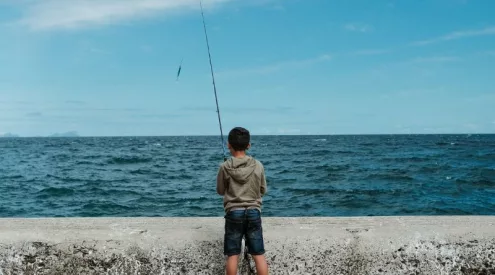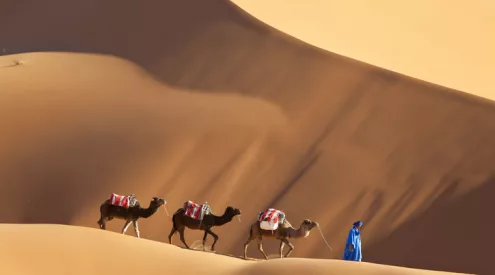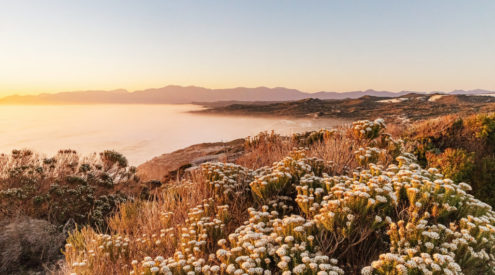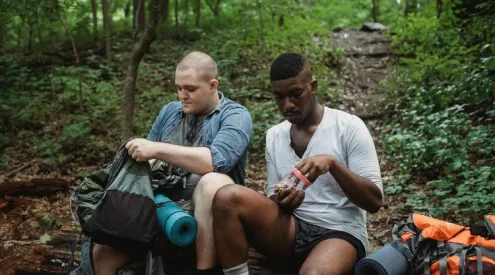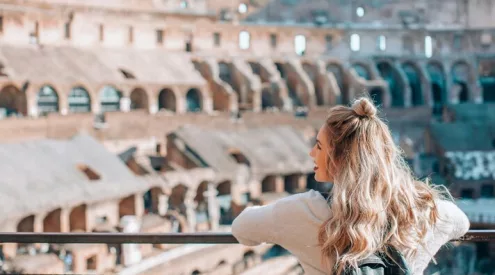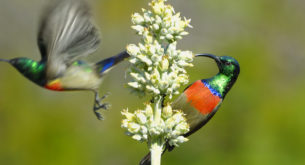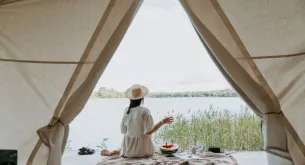When you travel, comparisons are as inevitable as they are irrelevant. But they happen.
Recently, I spent five days in Mombasa, Kenya, staying at the Nyali Beach Hotel. Friends had picked the location for a reunion, midway through our current travels around Africa, so all Mrs Blog and I had to do was get ourselves there.
I’d never really considered going to Mombasa. I’ve been to Zanzibar and thought, correctly or not, that that destination would have given me enough of a taste of the whole Africa-meets-Islam-meets olde-world colonialism scene.
Mombasa, I’d heard, was dirty, dangerous, and overly-touristy. One thing I have learned in more than 13 years of travelling around Africa is not to listen to other people and rumours. See and judge for yourself, is our motto.
I have a love-hate relationship with Zanzibar. I loved my first visit and hated my second.
A lot had happened on the island and around the world between my first trip in 1998 and my second, in 2003.
On the first visit I’d been in the bush for months and was dying for some sea, seafood and beach time. Stone Town seemed exotic, quirky, intriguing and jam-packed with history. It was a fun, funky place to explore with a good party scene and pristine white beaches, to the north, at Nugwi. The beachside lodges were rustic, low-impact and beautiful, and the lobsters the biggest and cheapest I’d ever devoured.
When I visited again in 2003 my country was at war, along with America, and our troops had just rolled into Baghdad when Mrs B and I rolled off the Dar es Salaam. A mini tidal wave of Islamic fundamentalism had swept across the island and things had most definitely changed – in the world and on Zanzibar.
“You westerners, you just want to make war and kill everyone,” a teenaged tourist tout told me when I politely refused his offer of drugs, accommodation and dolphin tours as we got off the boat.
What the?
The touts had been persistent on our first visit, but they were also good natured. Within seconds of turning this latest guy down I was being accused of being a Crusader aggressor. Perhaps it was the vibe I was giving off.
I’d only recently got back to Australia after serving six months in Afghanistan with the Australian Army, in 2002. My all expenses paid holiday to the world’s largest gravel pit was thanks to a moment of temporary insanity twenty years earlier when I’d joined the Australian Army Reserve. It was, however, very unfair of the tout to claim that I wanted to make war on the world and kill everyone. At that moment I only wanted to kill him. Mrs Blog and some nice ladies in burquas intervened at this point and the opening of the new front in The War Against Terror was averted.
Moving along, we found the basic, but clean budget hotel we had stayed in on our first trip, The Clove, had turned into a dirty, bedbug-inhabited dump with windows and shutters that did nothing to keep the noise and smell and mosquitos of Stone Town at bay.
A couple of discos in Stone Town frequented by western backpackers had recently been firebombed (a good thing, as no one was hurt and house music must die), and some Indian stores selling alcohol had been ransacked (ironically, the zealots had reportedly drank the confiscated liquor, which fuelled their ideologically-inspired rampage).
At Nungwi I found the pristine white beaches of 1998 were not so pristine anymore and as well as being fringed by palm trees there was also a growing mountain of empty plastic bottles behind the lodges.
The lobster I ordered was small and, more alarmingly, when I looked under its tail I saw it was a female, carrying eggs. As far as ecologically sustainable tourism went this was the African equivalent of a weekend break at Chernobyl.
So when my friends said come to Mombasa I have to confess that a little part of me was expecting more of the same. Here we had another old slave port where Arab-met-African, complete with supposedly idyllic villages and yet more charmingly stinky narrow lanes and spice markets.
Mombasa, was, in fact, the same, but only different.
For a start, it’s bigger. There isn’t the feel of claustrophobia I’d felt in the confines of Stone Town and the narrow strip of Nugnwi on Zanzibar.
Walking around the old markets of Mombasa itself, another island (but there the similarity to Zanzibar really ends), we were approached by just one very laid back (ie stoned) middle-aged tout in a Bob Marley T-shirt.
When our friend told our self-appointed ‘guide’ that we didn’t need any help (our friend had grown up in Mombasa) the Rastafarian smiled and loped along behind us. We never felt threatened or heavied by him and we eventually (and rather easily) lost him in the maze of alleys of the old market.
And there ended the hassle. The old market in Mombasa is, in fact, a market, as opposed to the predominantly tourist-focussed stalls of Stone Town. It seemed to me that the Mombasa shopkeepers were far too busy going about their real-life day-to-day business to bother grinding some nutmeg into the palms of their hands for some blonde Swedish backpacker to snort.
No one offered us coffee, dagga, priceless antiques, dolphin tours or anything else as we wandered from stall to stall.
Off the island of Mombasa and back on the mainland the beachside hotel was another surprise.
For sure, the coastline at Nyali Beach was far more developed than Nungwi on Zanizibar, but apart from scale the difference was that this stretch of beach had been developed in the 1940s, not in the 1980s.
The beachfront at Nyali is backed by a few old colonial hotels, such as the Nyali Beach Hotel (where we stayed), some low-rise modern resorts and a parade of stately beach houses. Some of the homes are in good repair, while others lie picturesquely neglected, like posh ship wrecks or dissipated remittance men sleeping off a beachside hangover.
The Nyali Beach Hotel was old enough to have captured some of the fading glory of the now-defunct British Empire, but new enough to have been equipped with reliable plumbing.
It was built, it seemed, at a time when gardens and space were more important than ensuring every tiny bungalow was built on the sand, within two metres of the high tide mark. The Nyali sprawls indolently – almost wastefully – around a huge block of land interspersed with manicured lawns, the odd boar, and a couple of swimming pools (one is Olympic sized).
It’s clean and well run and if there is a touch of the Hakuna Matata (no worries, as we say in Australia) about the service, believe me when I say it was some of the fastest and most efficient I’ve ever encountered in East Africa (OK, that’s not saying a lot, but the staff were friendly and everything we ordered did actually arrive – in time). No one accused me of wanting to wage war or kill innocent civilians, and the beer – Tusker – was as excellent as it was readily available.
The sand in front of the Nyali was as white as Zanzibar’s yet it was also very clean – swept daily. The 24-hour security at the hotel ensured that the beach was also cleared of tourist touts. The hotel had its own curio market on the beach and a couple of shops chock-full of Barak Obama T-shirts, caps, key rings and coffee mugs (The new president is THE growth industry in Kenya).
The lobsters I consumed in Mombasa were all big and, as far as I could tell, not expecting babies. Whether this was the result of conscious sustainable fishing practices or good luck (for me, not the lobsters), I don’t know.
What I do know is this: 1. Comparisons are pointless; 2. I’d go back to Mombasa rather than Zanzibar any day; and 3. You should ignore everything you’ve just read and go see Zanzibar and Mombasa for yourself.

